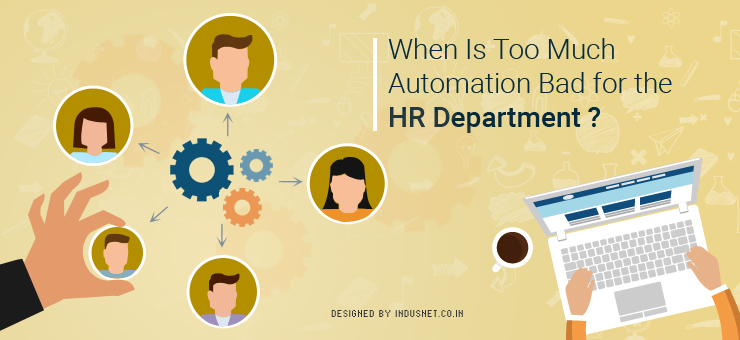
Lately, there has been a trend to automate every single business process possible. Companies have begun to invest in enterprise resource planning (ERP), human resource management systems (HRMS) and customer relationship management (CRM). Companies have also begun to automate industrial functions and certain mechanized skills. While all these are great, there is a time when one needs to stop.
One cannot and should not replace human managers with software programs
Automating everything possible and more will lead to a state wherein companies will not be able to have that human touch which makes working or dealing with a business entity a pleasure. Staff are known to prefer to a human manager for certain problems than having to use employee self-service. They may also find it more motivating when an HR manager appraises them personally, instead of letting employees’ access performance appraisals on their HRMS screen.
The reducing humanization of working spaces has led to the mechanization of company work culture. This is known to cause a reduction in performance and a lack of enthusiasm among staff. Certainly, there is a time when one can safely say that HR department has automated too many of its functions. Here lies the paradox. While HRMS makes things efficient, it also makes it unnecessary to have too many HR professionals. It is probably a better idea to strike a balance between the two.
Originally, the concept of human resources arose in order to actually manage the staff, motivate them and also to address their grievances so that they can perform better. Human resources have its roots in industrial psychology, which stresses on the importance of reducing man-machine conflicts. While HRMS is a great tool to automate basic and complex human resource functions, it cannot and should not replace human managers completely. This leaves the employees having to deal with product managers or immediate supervisors who are not trained to address employee grievances.
Bringing back the human touch
It is important to have an HR department with trained human resource personnel while also using automation tools such as HRMS. This allows HR managers to work on more abstract tasks that cannot be performed by computers. It is important to have regular one to one conversations with employees. This is a task that can never be eliminated, just because an HRMS cannot perform it.
There are a number of reasons why machines cannot completely replace human beings. One of the main reasons is, employees like to have their human managers around. While HRMS significantly reduces the need for human intervention, when dealing with employees, human managers have their role to play.
This leaves us with the conclusion that while HRMS is absolutely necessary for companies to get leaner and increase productivity, trained HR personnel are required too, so that employees do not feel alienated in a world that is ruled by machines. A good balance between the two will help companies to create the ideal atmosphere where employees remain motivated, human errors are reduced, and there is a symbiotic relationship between man and the machine.